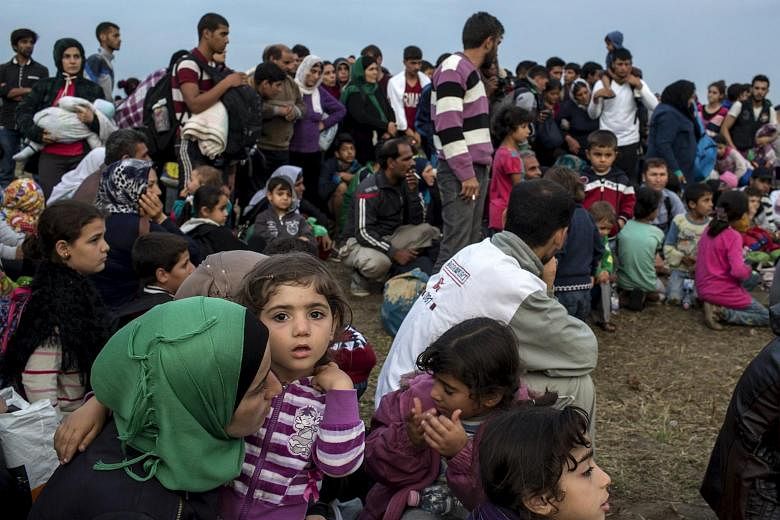WASHINGTON • Early this year, with the war in Syria grinding into its fifth year amid an ever-deepening humanitarian catastrophe for millions of migrants, 14 US senators wrote a letter to President Barack Obama urging that at least 65,000 of the displaced be allowed to resettle in the United States. Critics denounced the idea, saying it would open the nation's borders to potential terrorists, and some even branded the authors of the letter as the "jihadi caucus".
The criticism, which Obama administration officials say is baseless because screening procedures apply to asylum-seekers, was a powerful measure of the lack of political will and practical capability that has complicated the US' ability to intervene more directly in the full-blown migrant crisis unfolding in Europe.
Such obstacles, including an American public weary of overseas initiatives after over a decade of war in Iraq and Afghanistan, are formidable, even as heartrending photographs of dead children last week focused the US conscience on the Syrian crisis as never before, prompting renewed calls for aid.
Pleas for more aggressive US- led rescue measures seem all the more futile given the failures to reach consensus on the country's own immigration problems, made vivid in the ever-simmering debate over policing the Mexican border and calls by the leading Republican presidential candidate to deport 11 million undocumented immigrants.
"Even if there were a green light from the Russians and the Chinese, the appetite for yet another military adventure in Syria is very, very limited among the American public," said senior fellow Stewart Patrick, an expert on international institutions at the Council on Foreign Relations.
"I think, in this case, the administration is correct. The situation is so incredibly complex among the combatants, there's very little evidence that United States or Western intervention would make anything better.
"That choice has certain moral consequences and those moral consequences include vast suffering of the people in Syria and, now, in them striking out, at least in the case of refugees, for Europe," he said, adding that the crisis was "largely Europe's responsibility".
While the State Department has said it plans to increase the number of Syrian refugees it accepts to perhaps 1,800 by next year, it would be of little more than symbolic value given the more than four million Syrians in need of shelter. Taking in 65,000, as the 14 senators had urged, is virtually impossible under the existing asylum process, which requires lengthy background checks.
NEW YORK TIMES

